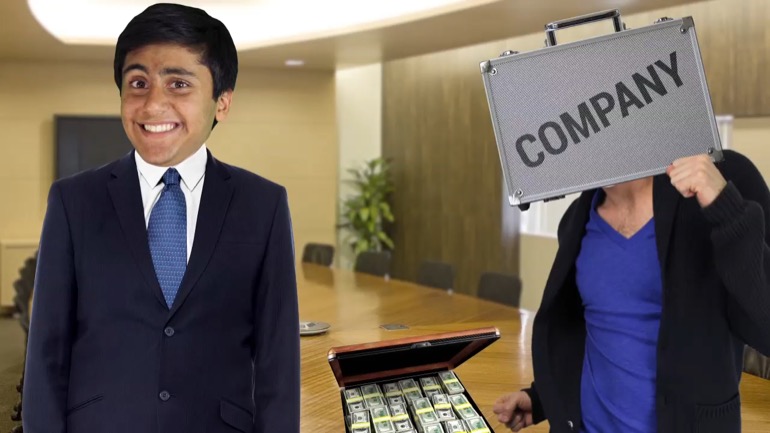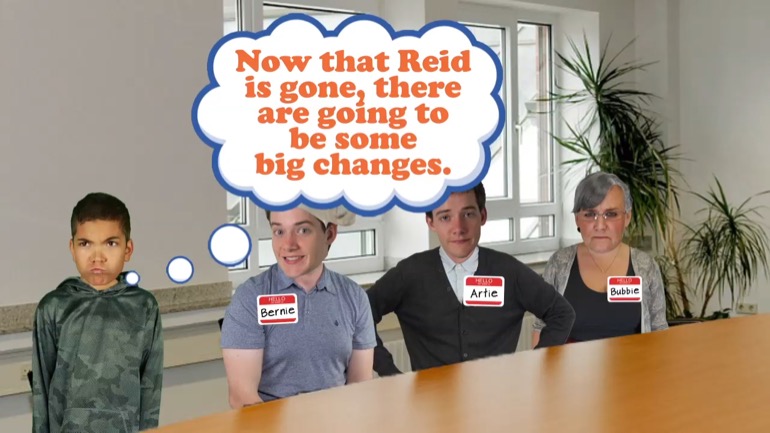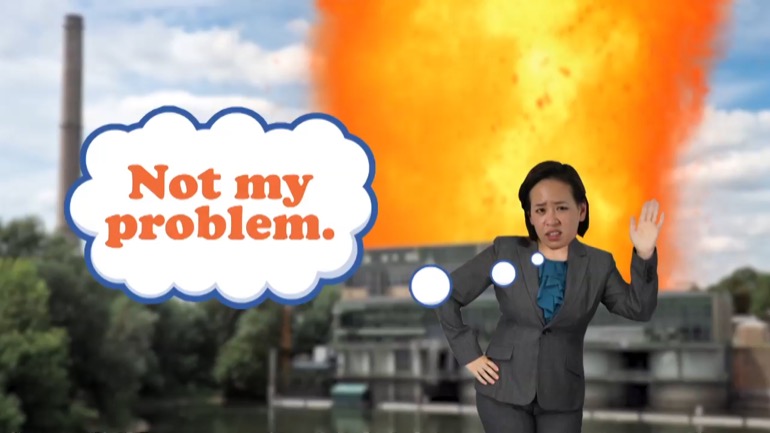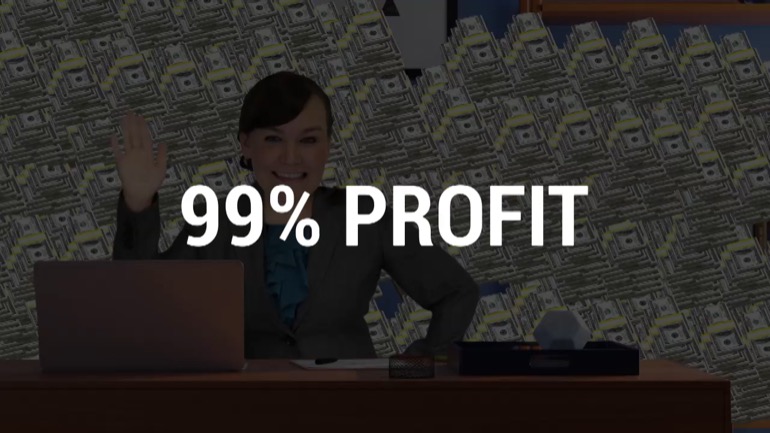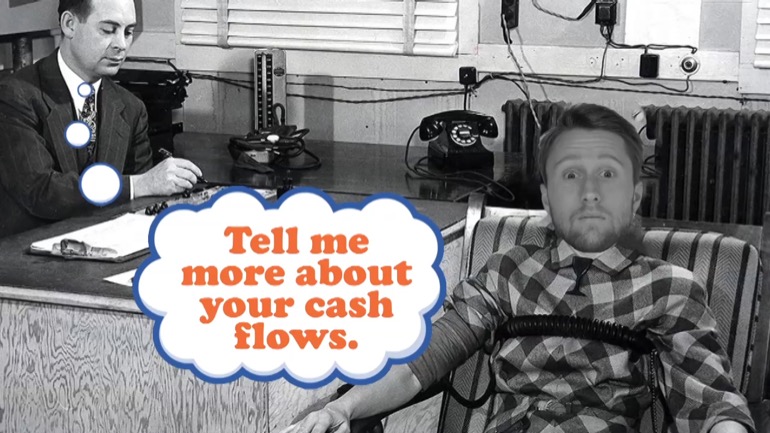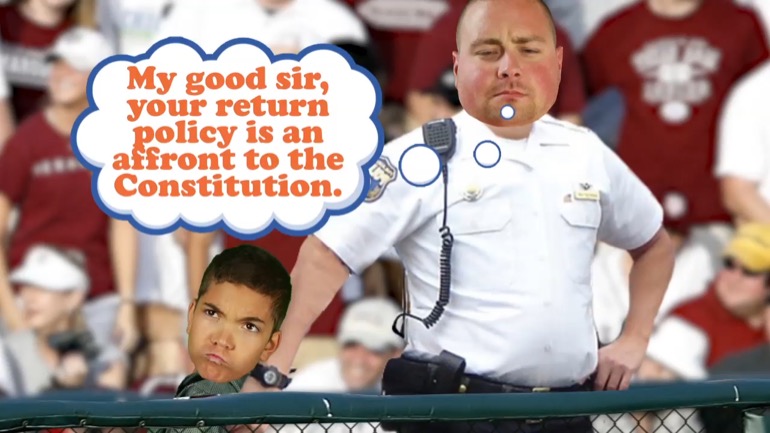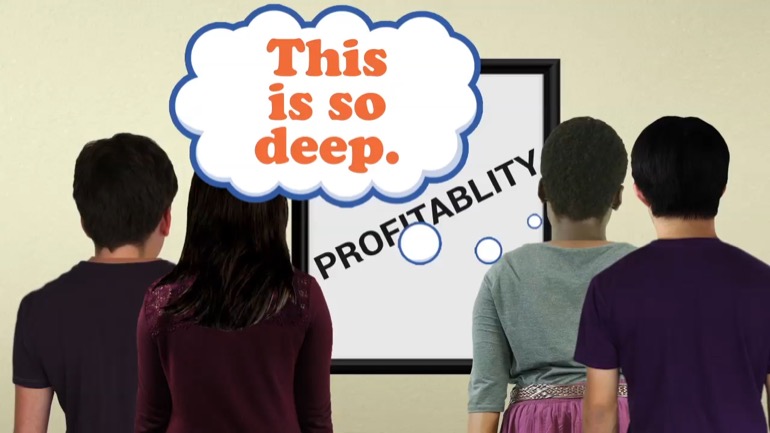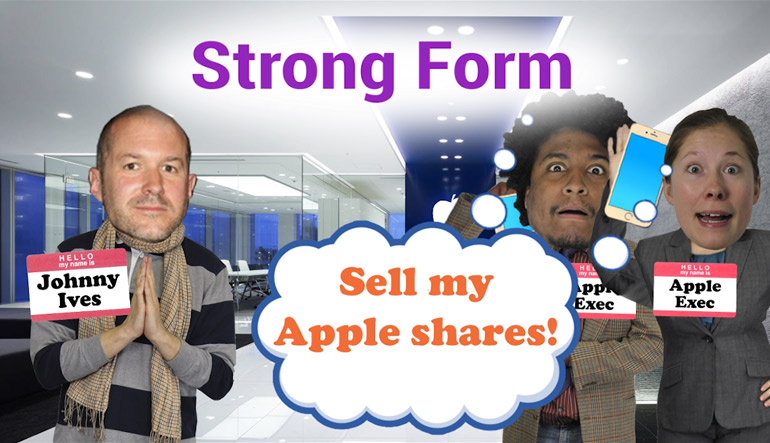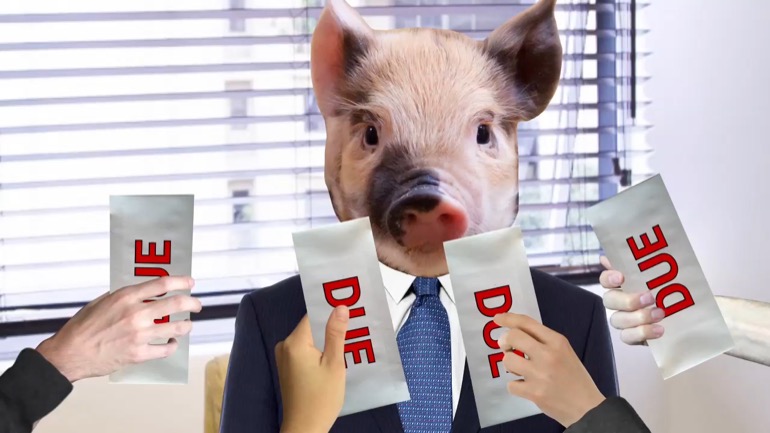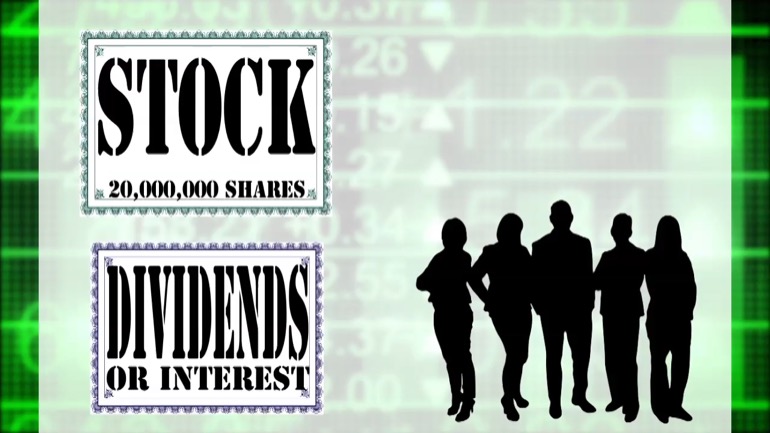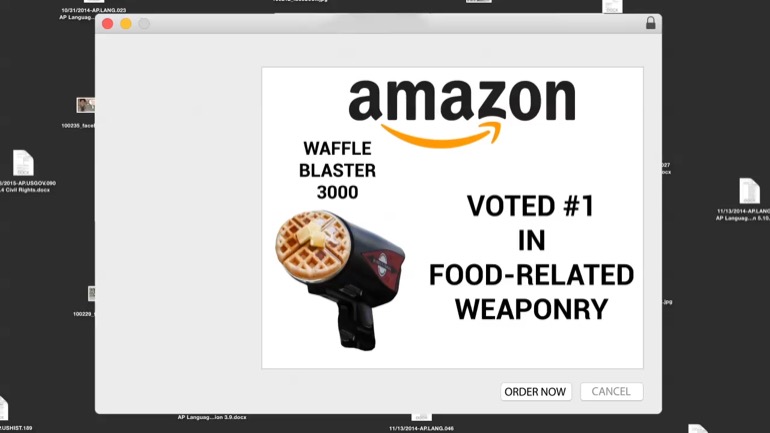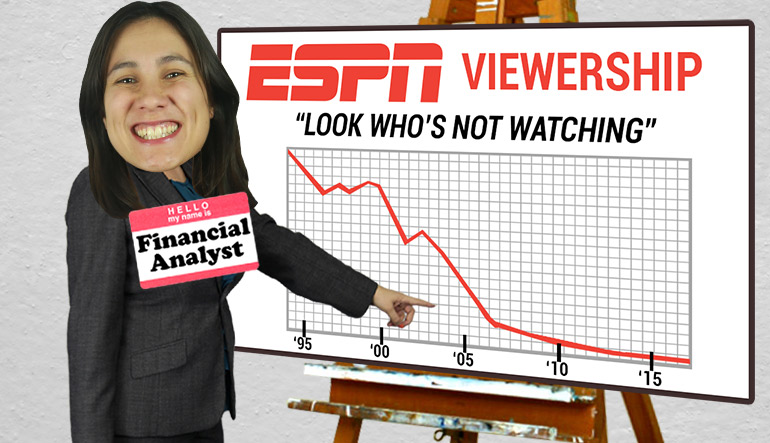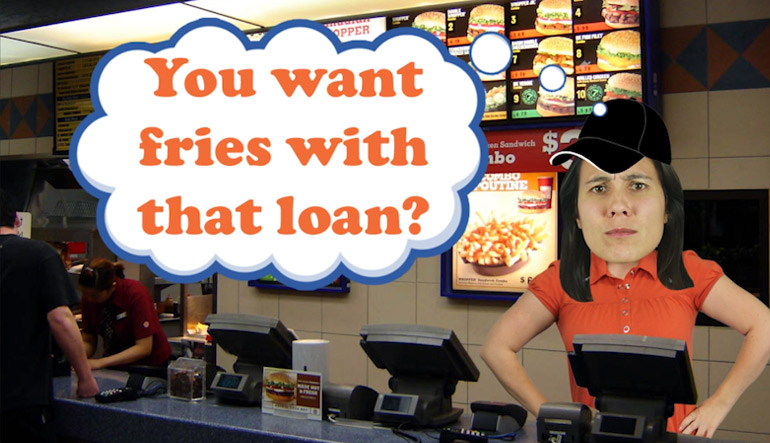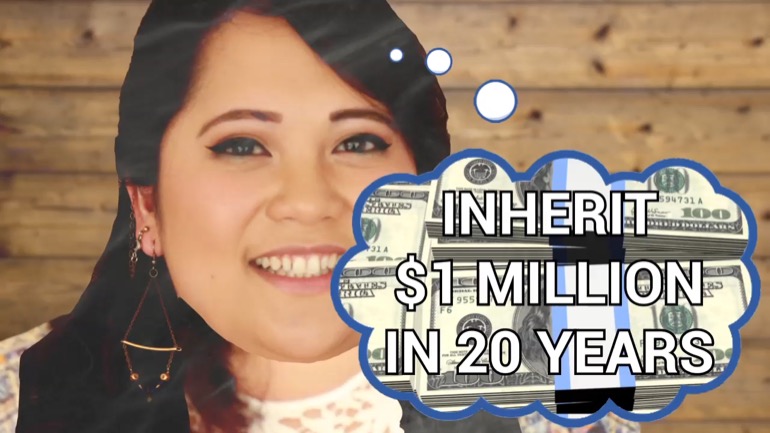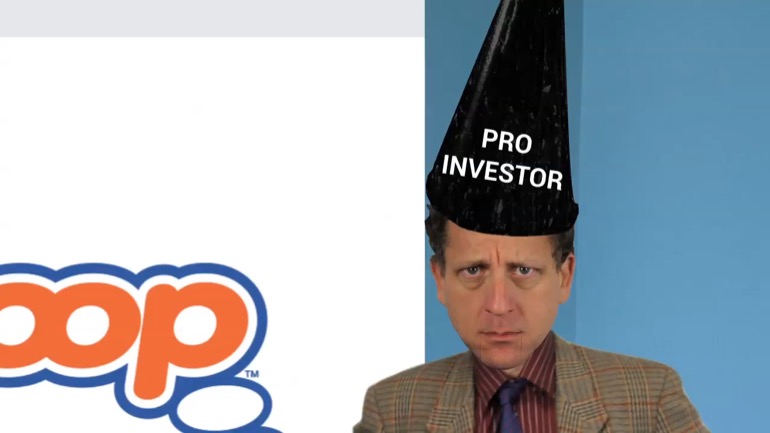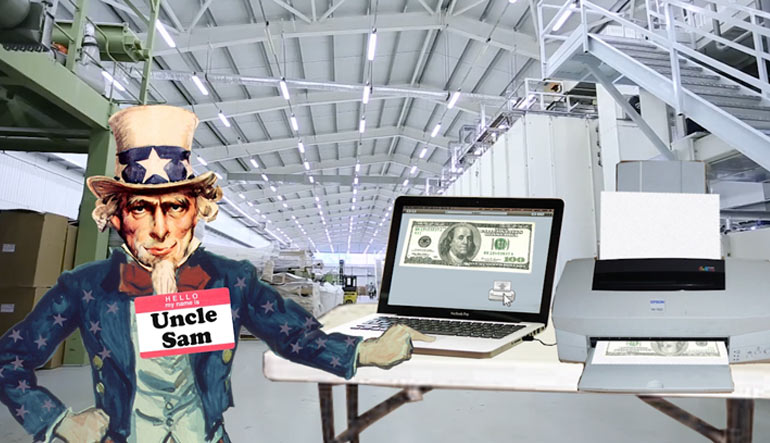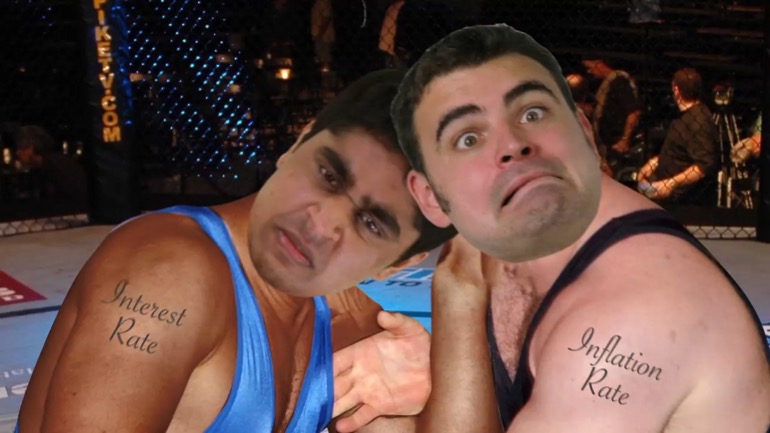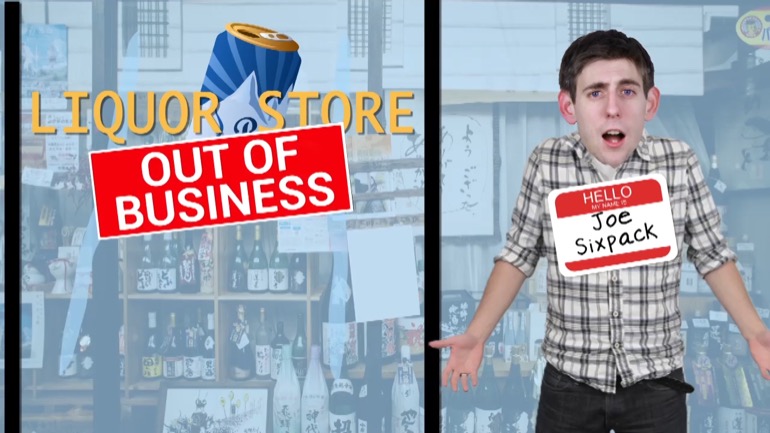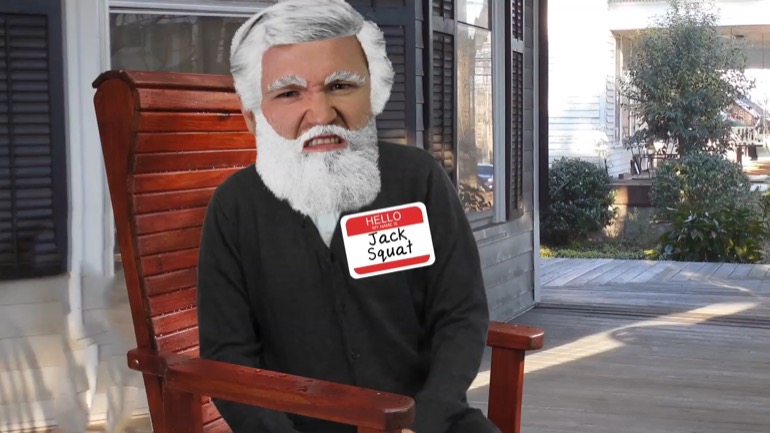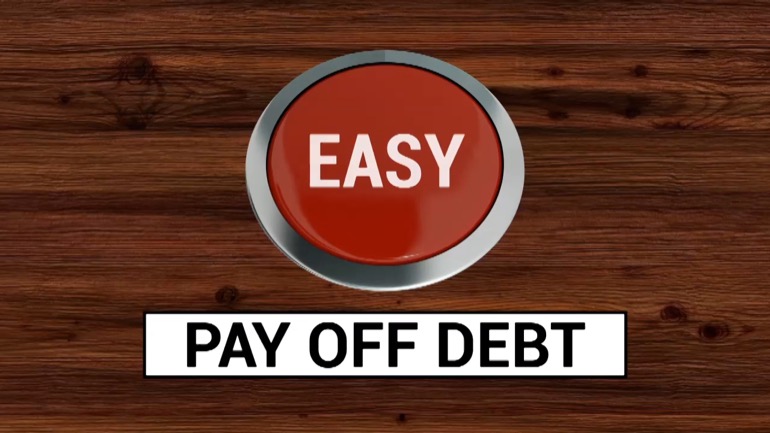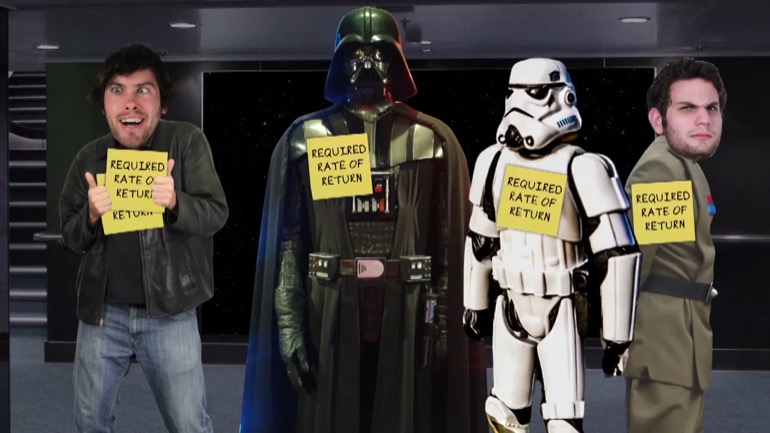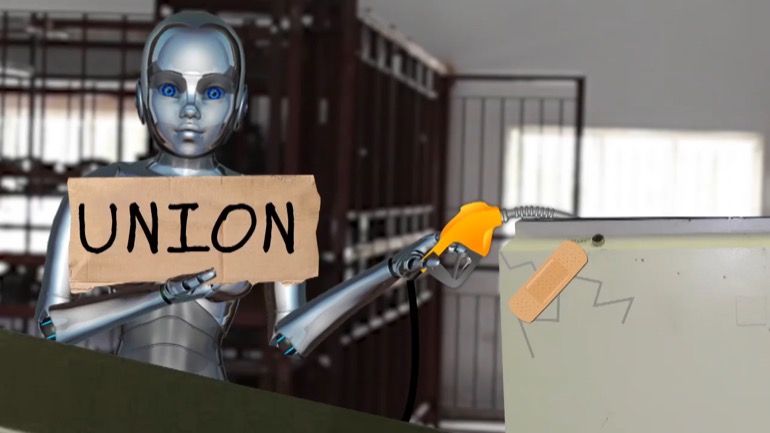ShmoopTube
Where Monty Python meets your 10th grade teacher.
Search Thousands of Shmoop Videos
Principles of Finance Videos 156 videos
Okay, so you want to be a company financial manager. It's basically up to you to make money for the shareholders. It would also be swell if you mad...
How is a company... born? Can it be performed via C-section? Is there a midwife present? Do its parents get in a fight over what to name it? In thi...
What is an income statement, and why do we need it in our lives? Well, let's take a look at an income statement for Year 1 of the Sauce Company, an...
Principles of Finance: Unit 7, The “Best” Capital 7 Views
Share It!
Description:
What’s the “best” capital? We think it’s Sacramento, but we might be biased. …Oh, financial capital? We better watch the video for that answer.
Transcript
- 00:00
Principles of finance Ah la shmoop the best capital Okay
- 00:05
so we're about to get into something that is really
- 00:08
whack Yeah the weighted average cost of capital and yeah
- 00:13
that's What wall street is calling wak wak model Think
- 00:16
about the notion of borrowing one hundred million bucks for
Full Transcript
- 00:19
a drone factory A sauce bottle Er or ah you
- 00:22
know a hair extension threat Er thing to a bank
- 00:25
They're all just the capital They rent out tio People
- 00:28
like you running a business to make a profit The
- 00:31
theory goes something like this When you have a funding
- 00:33
event you take the cheapest capital first until its availability
- 00:38
runs out And then you move on to the next
- 00:40
cheapest capital and continue lather rinse repeat until well your
- 00:45
funding is funded That is if debt cost five percent
- 00:48
to rent and you somehow figure out i'ii guest inmate
- 00:51
that the cost of preferred equity was seven point five
- 00:55
percent to rent and the cost of common eh Cody
- 00:58
was a ten percent and you needed one hundred million
- 01:01
dollars Yeah well then you take all the debt you
- 01:03
could't five percent to get that hundred million bucks funded
- 01:06
But a savvy lender might not want to be so
- 01:08
exposed and be all of your hundred million dollars So
- 01:11
maybe they'd say i'll cap you a twenty million bucks
- 01:13
like loan you twenty million dollars at five percent interest
- 01:16
and tell you to find the rest of money elsewhere
- 01:19
makes it more complex doesn't it Well then you look
- 01:21
to the preferred stock offerings and you think about del
- 01:24
maybe raising thirty million dollars there as a preferred stock
- 01:28
offering which just sits above the common but below the
- 01:31
dead in case things really go a ride and to
- 01:33
top things off Well then you'll finish with that last
- 01:36
fifty million dollars of that you need for the hundred
- 01:38
million dollars whatever factory so you're blended capital cost are
- 01:42
weighted average cost of capital here or whack would be
- 01:46
at twenty five and then thirty att seven point five
- 01:50
and fifty ten and those are hundreds of million dollars
- 01:53
You see their interest rates you'll pay is one two
- 01:55
and a half five it's really not a cash costs
- 01:57
in case the common because sold a part of yourself
- 02:00
so it's a different in a weird way it's way
- 02:01
more expensive than the other two alternates So the total
- 02:04
cost of this hundred million dollars raise is eight point
- 02:07
five million dollars a year for a weighted average cost
- 02:11
of eight point five percent Well this root system is
- 02:13
fine in a laboratory vacuum with financial rats borrowing the
- 02:16
money But in the real world a lot of other
- 02:18
issues affect your decision making not the least of which
- 02:21
revolves around the volatile till it e of the business
- 02:23
you're in Why volatilities Well if you have fifty million
- 02:26
dollars in cash profits in a given year and three
- 02:29
hundred million dollars in eight percent debt well the twenty
- 02:32
four million you have in interest is less than half
- 02:35
your profits So payment of it is a snap meaning
- 02:37
it's easy to make that payment and maur If you
- 02:40
want to pay down the principal you have a cushion
- 02:42
at least twenty six million box in this example ignoring
- 02:45
the fact that all of the twenty four million in
- 02:47
interest cost is also tax deductible So it'll feel like
- 02:51
even less than twenty for when you know you go
- 02:53
to write those checks But if you have a highly
- 02:56
cyclical business like let's say you sell green washing machines
- 03:00
Well in good times you sell a lot of them
- 03:02
in bad times Now you just sit there watching the
- 03:05
loads go round and round So when a goodyear yeah
- 03:07
you earned fifty million dollars but in a bad year
- 03:10
you lose ten million Do the bondholders take a break
- 03:13
from collecting the money you owe them in bad years
- 03:16
Oh sure they just pat you on the back with
- 03:18
a wink and say hey but i got this Don't
- 03:20
worry about the interest this year No it's just the
- 03:23
opposite In fact they want to get paid and they
- 03:26
do get paid or they take over ownership of your
- 03:29
company or whatever you pledge by the money they loaned
- 03:31
you If you live in a highly volatile business climate
- 03:34
or arena While you can't afford much in the way
- 03:37
of debt financing that is if you must raise capital
- 03:41
well you often have to sell equity or ownership in
- 03:44
yourself which is kind of a perp actual cost and
- 03:47
it usually costs a lot more than dead if you
- 03:49
really do careful math on it because you can't afford
- 03:52
the downside of that volatility so capital becomes essentially way
- 03:56
more expensive in volatile businesses for cyclical business is very
- 04:00
small Debt is often find but companies do go bankrupt
- 04:03
in bad times all the time in cyclicals who over
- 04:06
borrowed like you know the auto into hello g m
- 04:09
we're looking at you All right Well on the other
- 04:10
hand if you do live in a low volatility world
- 04:13
like the cable industry or the electric utilities industry or
- 04:16
the fast food industry or legal drugs then you can
- 04:20
afford lots of debt because things would have to get
- 04:23
unbelievably bad before people turn off their reality tv Stop
- 04:27
using the heat and you know quit eating tacos Those
- 04:31
industries get the benefit of quote chief for capital unquote
- 04:34
in the form of being able to use debt financing
- 04:37
to grow or roll out new product or buy back
- 04:40
stock or pay a dividend whatever they want So yeah
- 04:42
when your grocery chain is looking to unleash its new
- 04:45
tastes like chicken gelato on the unsuspecting public cheap debt
- 04:49
capital it is probably the way to go and then
- 04:52
just keep your fingers crossed that everyone will have a
- 04:54
taste for poultry flavored dairy products Yeah what do you 00:04:57.35 --> [endTime] think That is pretty foul
Related Videos
GED Social Studies 1.1 Civics and Government
What is bankruptcy? Deadbeats who can't pay their bills declare bankruptcy. Either they borrowed too much money, or the business fell apart. They t...
What's a dividend? At will, the board of directors can pay a dividend on common stock. Usually, that payout is some percentage less than 100 of ear...
How are risk and reward related? Take more risk, expect more reward. A lottery ticket might be worth a billion dollars, but if the odds are one in...






